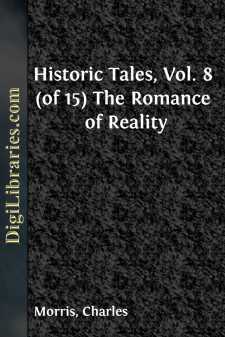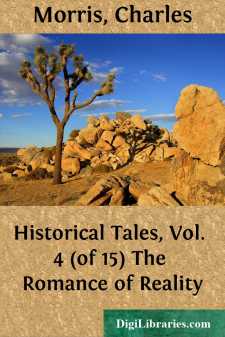Categories
- Antiques & Collectibles 13
- Architecture 36
- Art 48
- Bibles 22
- Biography & Autobiography 813
- Body, Mind & Spirit 142
- Business & Economics 28
- Children's Books 14
- Children's Fiction 11
- Computers 4
- Cooking 94
- Crafts & Hobbies 4
- Drama 346
- Education 46
- Family & Relationships 57
- Fiction 11829
- Games 19
- Gardening 17
- Health & Fitness 34
- History 1377
- House & Home 1
- Humor 147
- Juvenile Fiction 1873
- Juvenile Nonfiction 202
- Language Arts & Disciplines 88
- Law 16
- Literary Collections 686
- Literary Criticism 179
- Mathematics 13
- Medical 41
- Music 40
- Nature 179
- Non-Classifiable 1768
- Performing Arts 7
- Periodicals 1453
- Philosophy 64
- Photography 2
- Poetry 896
- Political Science 203
- Psychology 42
- Reference 154
- Religion 513
- Science 126
- Self-Help 84
- Social Science 81
- Sports & Recreation 34
- Study Aids 3
- Technology & Engineering 59
- Transportation 23
- Travel 463
- True Crime 29
Man And His Ancestor A Study In Evolution
by: Charles Morris
Categories:
Description:
Excerpt
EVOLUTION VERSUS CREATION
In any consideration of the origin of man we are necessarily restricted to two views: one, that he is the outcome of a development from the lower animals; the other, that he came into existence through direct creation. No third mode of origin can be conceived, and we may safely confine ourselves to a review of these two claims. They are the opposites of each other in every particular. The creation doctrine is as old almost as thinking man; the evolutionary doctrine belongs in effect to our own generation. The former is not open to evidence; the latter depends solely upon evidence. The former is based on authority; the latter on investigation. The doctrine of direct creation can merely be asserted, it cannot be argued; the statement once made, there is nothing more to be said; it is an ipse dixit pure and simple. The doctrine of evolution, on the contrary, founded as it must be on ascertained facts, is fully open to argument, and depends for its acceptance on the strength and validity of the evidence in its favor.
If the doctrine of the direct creation of man had been originally presented in our own day, proof of the assertion would have been at once demanded, and the only evidence admissible would have been that of witnesses of the act of creation. There could, of course, have been no human witnesses, as there would have been no preceding human beings, and witnesses not human have, in the present day, no standing in our courts. As the case stands, however, the doctrine arose in an age when man did not trouble himself about evidence, but was content to accept his opinions on authority; and this, strangely enough, is held by many to be a strong point in its favor, it gaining, in their minds, authenticity from antiquity. It is claimed, indeed, to be sustained by divine authority, but this is a claim that has no warrant in the words of the statement itself, and one to which no form of words could give warrant. To establish it, direct and incontestable evidence from the creative power itself would be necessary, and it need scarcely be said that no such evidence exists. It is not easy, indeed, to conceive what form such evidence could take. It would certainly need to be something far more convincing than a statement in a book.
It might have been better for civilized mankind if the opening pages of Genesis had never been written, since they have played a potent part in checking the development of thought. As the case now stands, the cosmological doctrines they contain can no longer claim even a shadow of divine authority, since they have been distinctly traced back to a human origin. It has been recently discovered that they are simply a restatement of the Babylonian cosmology, as given in a literary production ages older than the Bible, an epic poem of very remote date. They are, doubtless, an outgrowth of the cosmological ideas of early man, and those who accept them must do so on the basis of belief in their probability; it is no longer permissible to claim for them the warrant of divine origin....












